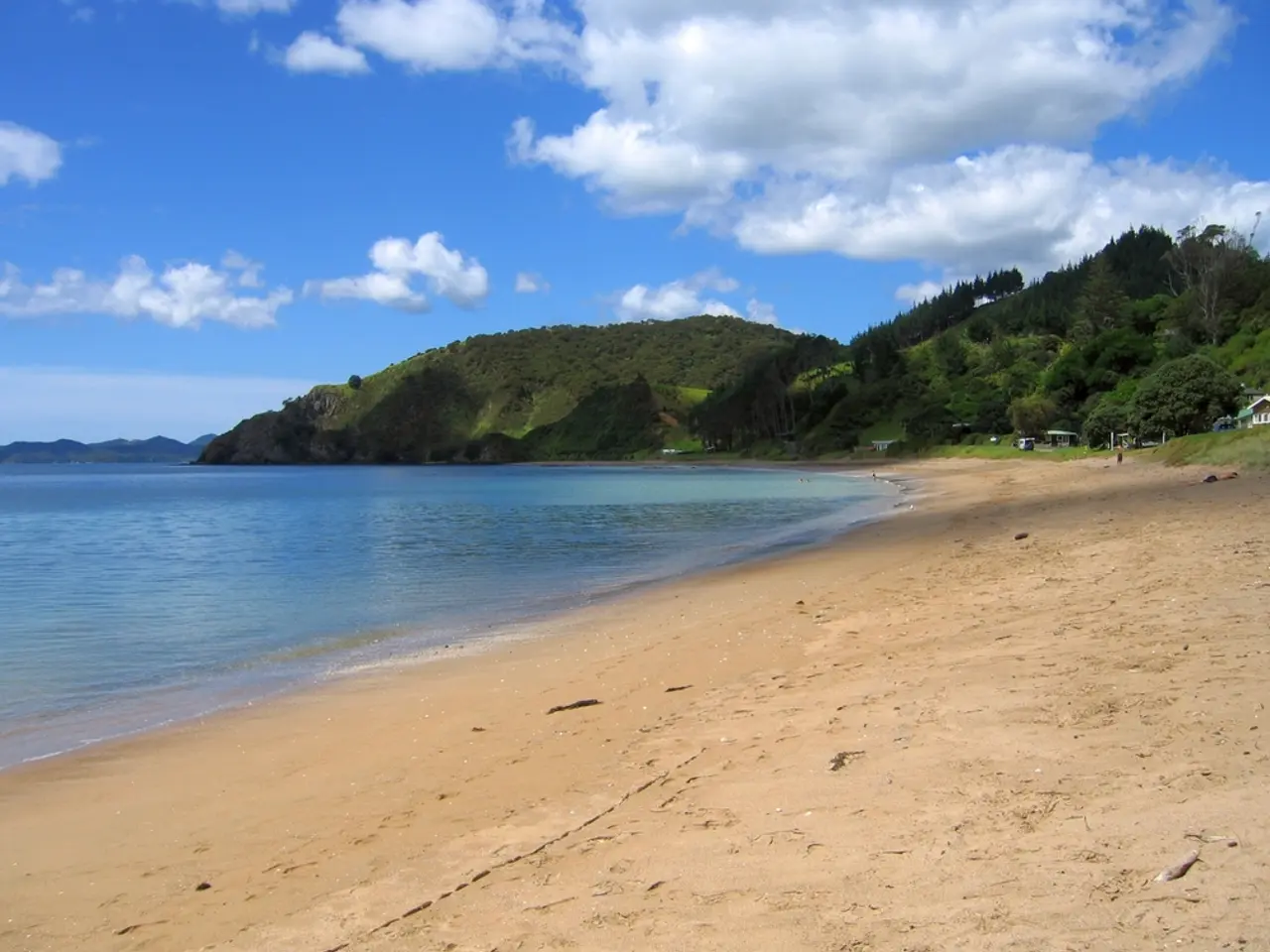Tectonic activity in the Atlantic Ocean may be spawning a colossal earthquake cluster.
In a groundbreaking discovery, a new study published in Nature Geoscience proposes the emergence of a potential tectonic fault beneath the Atlantic Ocean. This research, led by Prof João Duarte, a geologist at the University of Lisbon, and Raffaele Bonadio, a geophysicist at the Department of Earth Sciences in Cambridge, sheds light on the possibility of a future supercontinent and the associated risks of strong earthquakes and tsunamis.
Duarte's team found evidence of delamination, a process where the mantle is peeling away, beneath the Horseshoe Abyssal Plain. This unusual unpeeling is almost unheard of in the oceanic crust, which usually behaves like a "crème brûlée". Water seeped into the rock over millions of years, chemically weakening it and allowing chunks of mantle to sink into Earth's depths.
The implications of this discovery are significant. Subduction zones, responsible for the planet's most devastating 'megathrust' quakes, could eventually cause Africa, Europe, and the Americas to move together, forming a future supercontinent. The study's findings suggest the possibility of a new subduction zone emerging in the Atlantic, posing a potential threat to coastal regions across the ocean.
Portugal, despite lying far from major fault lines, has experienced significant earthquakes. On 1 November 1755, Lisbon was devastated by a magnitude 8.7 earthquake that killed tens of thousands. In 1969, a magnitude 7.8 tremor struck off Portugal's coast, killing 25 people. The 1969 earthquake raised questions because it had the signature of a subduction zone, yet there isn't one in the Atlantic.
Duarte warns that big earthquakes are likely to happen again in the Atlantic. He compares the need for preparedness to carrying an umbrella when forecasted for rain, as the exact time of a major earthquake is unknown. The impacts of these earthquakes could devastate unprepared coastal regions across the Atlantic.
Duarte's research has been published in journals such as Geophysical Research Letters, Nature Communications, and Geology. He is an assistant professor in tectonics at the University of Lisbon and the president of the Tectonics and Structural Geology Division of the European Geosciences Union.
While predicting when a mega-tsunami will strike remains challenging, the study underscores the importance of preparedness and early warning systems. As we continue to learn more about the Earth's tectonic activity, it is crucial to stay informed and take necessary precautions to protect coastal communities from potential threats.
Read also:
- Nightly sweat episodes linked to GERD: Crucial insights explained
- Antitussives: List of Examples, Functions, Adverse Reactions, and Additional Details
- Asthma Diagnosis: Exploring FeNO Tests and Related Treatments
- Unfortunate Financial Disarray for a Family from California After an Expensive Emergency Room Visit with Their Burned Infant








